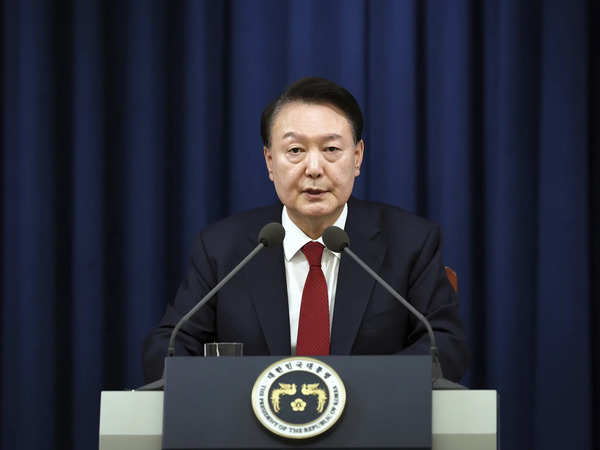South Korean President Yoon Suk-yeol’s recent statements about enhancing U.S. military presence in the region, including the potential deployment of nuclear assets, have ignited significant debate and concern. His comments, which were made during a high-profile defense meeting, have drawn criticism from both domestic and international observers, raising fears of escalating regional tensions.
President Yoon’s announcement, which suggested a bolstered U.S. strategic military presence in South Korea, aimed to deter North Korean threats. However, the implications of such a move have sparked controversy. Critics argue that this approach could destabilize the already volatile Korean Peninsula and strain South Korea’s diplomatic relations with neighboring countries.
During a defense meeting last week, President Yoon emphasized the need for a stronger U.S. military presence to counter North Korea’s growing nuclear capabilities. He mentioned the possibility of deploying U.S. strategic assets, including nuclear weapons, as a deterrent. This announcement comes amid heightened tensions following North Korea’s recent missile tests.
Domestic opposition quickly emerged, with lawmakers and analysts expressing concern over the potential repercussions. “The deployment of nuclear assets on South Korean soil could lead to an arms race in the region,” said Kim Sung-han, a prominent political analyst. “It risks provoking North Korea and could lead to unintended military confrontations.”
International reactions were equally critical. China, South Korea’s largest trading partner, issued a statement urging caution and calling for peaceful negotiations. “The introduction of nuclear assets in the region could undermine regional stability and peace,” said a Chinese Foreign Ministry spokesperson. Russia also expressed its disapproval, highlighting the potential for increased regional tensions.
Supporters of President Yoon’s strategy argue that a stronger U.S. military presence is necessary to ensure South Korea’s security. “North Korea’s missile capabilities are advancing rapidly,” said a senior defense official. “We need to take decisive action to protect our nation.”
However, experts warn that such a move could have far-reaching consequences. The potential deployment of nuclear assets may violate existing international agreements and provoke an aggressive response from North Korea. Pyongyang has already condemned the announcement, describing it as a “dangerous escalation” and threatening retaliatory measures.
The Korean Peninsula has long been a hotspot of military tension, with North Korea’s nuclear ambitions posing a persistent threat. In recent years, diplomatic efforts have fluctuated, with periods of negotiation often followed by renewed hostility. The deployment of U.S. strategic assets in South Korea has been a contentious issue, with previous administrations opting for a more cautious approach.
President Yoon Suk-yeol’s announcement marks a significant shift in South Korea’s defense strategy. While intended to enhance national security, the potential deployment of U.S. nuclear assets has sparked widespread debate and concern. As regional and global stakeholders react, the consequences of this strategic decision will unfold in the coming months. The international community will closely watch how this development impacts the delicate balance of power on the Korean Peninsula.
The future of South Korea’s defense policy remains uncertain, with President Yoon’s administration facing the challenge of navigating these complex geopolitical waters.



